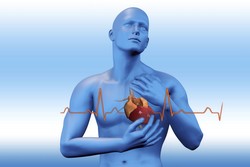Biomarkers for cardiovascular disease
Over the years, a number of cardiovascular risk scores have been devised based upon traditional risk factors such as high blood pressure, smoking and cholesterol levels. However, these scores are population based and not all people with these risk factors will develop severe CVD, neither will all people with severe CVD have a characteristic risk factor profile. As a result, there is an unmet clinical need for stratified cardiovascular medicine that can deliver accurate risk prediction for each individual patient and propose targeted preventative therapy. To address this, scientists of the EU-funded project EU-MASCARA (Markers for sub-clinical cardiovascular risk assessment) set out to validate clinically useful biomarkers and sets of biomarkers in prevention and management of CVD. The long-term goal was to evaluate if these biomarkers could aid CVD risk assessment. Researchers investigated the levels of various biomarkers, including genetic, proteomic and metabolomic markers, in clinical cohorts of people with CVD, people at early stages of CVD and normal individuals. The biomarkers exhibiting an association with established or early CVD were taken further in follow-up studies to see their capacity to predict heart failure. Various miRNAs and urinary polypeptides emerged as predictive factors for heart failure, and diagnostic assays were developed for commercialisation and potential clinical exploitation. Furthermore, the project investigated the molecular mechanisms of disease and studied the association between lifestyle factors and body weight, cardiovascular risk factors and biomarkers of CVD. A major innovation of EU-MASCARA was the integration of clinical information and biomarker data into a mathematical model capable of predicting CVD risk. Considering the multifactorial nature and the relatively long duration of development, precision medicine in CVD is very challenging. The EU-MASCARA biomarker-based stratification process is a step closer to personalised medicine and promises to improve diagnosis and reduce the population risk of CVD.
Keywords
Biomarkers, cardiovascular disease, EU-MASCARA, miRNA, urinary polypeptides







